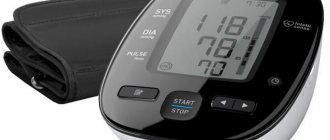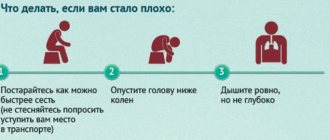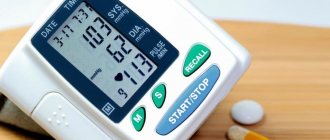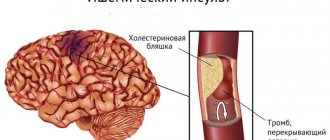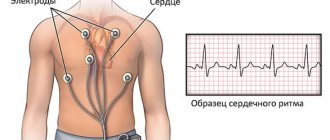Medicines for high blood pressure are in widespread demand not only in our country. Today, hypertension (hypertension) is considered a disease of youth, as cases of the disease are increasingly being recorded among young people and adolescents.
- Andipal for high blood pressure
- Corvalol: lowers blood pressure?
- Valerian and blood pressure
- Shilajit and blood pressure
- Eufillin and blood pressure
- Glycine lowers blood pressure
- Anaprilin for blood pressure
- Mydocalm: does it increase blood pressure?
- No-spa and pressure
- Concor from pressure
- Enalapril: for blood pressure?
- Papazol and blood pressure
- Enap and pressure
- Nitroglycerin and blood pressure
- Captopril for blood pressure
- Novopassit and pressure
- Papaverine and blood pressure
- Iodine and blood pressure
- Afobazole: effect on blood pressure
- Honeysuckle and pressure
Drug treatment for high blood pressure may include the following medications:
- β-adrenolytics (normalize cardiac activity and reduce peripheral vascular resistance; the most popular are timolol and anaprilin)
- diuretics (they remove excess fluid from the body; veroshpiron and furosemide are effective and widespread)
- ACE inhibitors (affect the rhinin-angiotensin system; mainly prescribed ramipril or captopril)
- calcium antagonists (in pharmacies you can find cinnarizine, felodipine, verapamil)
- alpha blockers (block impulses that lead to vasoconstriction; doxazoline is the most popular)
- angiotensin receptor blockers (inhibit the active action of angiotensin; you can buy valsartan, irbesartan, diovan, cozaar in pharmacies)
- medications to dilate blood vessels, such as apressin or dimecarbine
Andipal for high blood pressure
Andipal is a drug from a number of vasodilating antispasmodics. It contains substances such as analgin, papaverine, dibazole and phenobarbital. Dibazole just affects blood pressure, reducing them. Papaverine is an antispasmodic that will relax smooth muscles. Phenobarbital has a calming effect, which also reduces blood pressure. But pressure decreases only if it is caused by stress or vascular spasms. If you are diagnosed with essential hypertension, Andipal will not be effective.
The medicine in question is not intended to stabilize blood pressure. If you have headaches without a doctor’s prescription, it is better not to take this drug, because low blood pressure can also be the cause of headaches.
Mechanism of action of the drug
Andipal has established itself as an effective antispasmodic, quickly normalizing blood pressure and relieving symptoms associated with hypertension: severe headache, feeling of heat, tachycardia, nervous agitation.
- Analgin slows down the release of prostaglandins of the arachidonic group, reduces pain, and affects the activity of the body's thermoregulation center.
- Papaverine slows down the flow of calcium into cells, reduces vascular tone, relaxes smooth muscle fibers, eliminating peripheral spasms. Helps improve blood supply to internal organs and reduce headaches.
- Bendazole complements the action of papaverine, dilates the vascular bed, improves the functions of the spinal cord, eliminates the feeling of body numbness, dizziness and other neurological symptoms.
- Phenobarbital reduces nervous excitement, reduces sensitivity to stress factors, calms, and helps eliminate insomnia.
The active substances used together reduce the symptoms of disorders of the heart, blood vessels, central nervous system, and internal organs.
The tablets quickly dissolve under the action of gastric juice and are absorbed into the blood. The effect of the drug develops within 15–30 minutes and lasts up to 8–10 hours. The substances do not accumulate in the body; they are transformed in the liver. Metabolites are excreted with intestinal contents and through the kidneys.
Corvalol: lowers blood pressure?
The composition of Corvalol includes ethyl ester of α-bromoisovaleric acid, phenobarbital and mint oil, which gives the drug a specific strong odor. Corvalol relieves spasms, stabilizes the human nervous system, and greatly dilates blood vessels. After taking this drug, many note that it was easier for them to fall asleep.
This medicine can be taken if high blood pressure is caused by stress, vascular spasms, or lack of sleep. Corvalol is drunk before meals (add 30 drops of medicine to 50 ml of water), 1-3 doses per day. In some cases, doctors advise increasing the dosage to forty drops. Corvalol is also sold in tablets, which are taken a couple of times a day in the amount of one or two tablets.
Long courses of Corvalol to lower blood pressure are prohibited. The drug should be alternated with another drug of similar action or breaks between courses of administration.
Valerian and blood pressure
Valerian tincture contains isovaleric acid, borneol ester, alkaloids and valeric acid. This remedy helps to calm down sleep disorders, stress, and also helps with gastrointestinal spasms. Valerian tincture reduces blood pressure caused by the reasons just listed, but the medicine does not have a direct hypotensive effect. Mainly prescribed as part of combination therapy. Take valerian after meals, 25 drops (maximum 4 times a day). Among the side effects that appear with an overdose are drowsiness, causeless fatigue and slight dizziness.
Adverse reactions
Therapy with Andipal can cause:
- allergic skin rashes;
- feelings of drowsiness;
- liver dysfunction.
After taking Andipal, it is not recommended to drive a vehicle or perform work that requires increased concentration.
Among the side effects of the drug are:
- blood thinning;
- development of a depressive state;
- depression of the nervous system;
- decreased motor activity.
Due to numerous adverse reactions, Andipal is not recommended for use as a pain reliever. For this purpose, drugs with a milder therapeutic effect are selected.
In case of an overdose of the drug, the following is observed:
- drowsiness;
- dizziness;
- collptoid state.
Shilajit and blood pressure
Shilajit is a natural remedy that contains many useful micro- and macroelements, as well as organic substances. Scientists still do not answer exactly the question of how mumiyo affects blood pressure. It may contain various ingredients depending on the location of the deposits and some features of the area.
Shilajit is known to relieve inflammation, help remove toxins from the body, strengthen the defenses, etc. Shilajit is supposed to lower blood pressure. It contains chromium, which affects blood pressure. But one tablet of the product is unlikely to help. A minimum twenty-day course is required. Gradually, the body's metabolic processes stabilize, and along with them, the pressure decreases to some extent.
Treatment
Almost all patients with hypertension need blood pressure lowering medications. At the initial stage of the disease, with a slight increase in blood pressure, it is sometimes possible to bring the indicators back to normal by changing lifestyle (diet, weight loss, stress management, physical activity). But most patients still require constant medication. If treatment is stopped, high blood pressure, and along with it unpleasant symptoms, and the risk of complications return. During treatment, it is very important to monitor the level of pressure and keep a diary by the patient in which his indicators are recorded. This allows you to select the optimal treatment and accurately assess its effect.
Nowadays, a large number of drugs have been created that reduce blood pressure. Let's look at the main groups of these drugs.
ACE inhibitors
- Enap;
- Diroton;
- Prestarium A;
- Hartil.
They suppress (inhibit) one of the enzymes involved in raising blood pressure and are often used as the first choice drugs when starting treatment for hypertension.
Advantages of this group:
- do not affect the pulse rate (can be prescribed for any pulse rate);
- do not cause an increase in cholesterol and blood sugar levels;
- for diabetes mellitus and chronic kidney disease, they not only reduce blood pressure, but also prevent the development of renal failure;
- these medications are also effective for chronic heart failure.
But this group is not suitable for pregnant (or planning pregnancy) women - it can have a negative effect on the fetus. Also, sometimes, while taking these medications, a dry cough appears. If it greatly bothers the patient, it is necessary to replace it with a drug from another group.
ACE inhibitors are not suitable for pregnant women, because negatively affect the fetus.
Angiotensin receptor blockers (ARBs).
- Lozap;
- Valsacor;
- Aprovel;
- Edarby.
Their mechanism of action is close to the drugs of the previous group, but blocks the process at a different level. In general, they have the same properties as ACE inhibitors. They are often prescribed if a dry cough develops while taking ACE inhibitors, since this group does not have such a side effect.
Beta blockers
- Concor;
- Betalok;
- Nebilet.
They reduce blood pressure by acting on beta-adrenergic receptors of the heart and blood vessels. In addition to lowering blood pressure, these medications slow down the heart rate. They are preferable if you are prone to rapid heartbeats, but if your heart rate is initially low, they are not recommended. When selecting a dose and treatment, pulse control is required (it should be at least 50 beats per minute).
They are also recommended for use when hypertension is combined with coronary heart disease or chronic heart failure. And when combined with bronchial asthma or chronic obstructive pulmonary disease (COPD), they should be used with caution - bronchospasm may increase.
Calcium antagonists
They reduce blood pressure by affecting the calcium channels of cells. They can be used when hypertension is combined with bronchial asthma, COPD, diabetes mellitus, and kidney disease.
Diltiazem, Verapamil, Isoptin (extended form) - also reduce heart rate and can be used as an alternative to beta blockers.
Cordaflex, Normodipin, Lerkamen - without reducing the pulse, they have a vasodilating effect. They are especially effective in increasing diastolic (“bottom”) pressure.
Diuretics
- Hypothiazide;
- Indapamide;
- Arifon-retard;
- Indapamide retard.
Remove excess water and sodium from the body. Especially relevant for people with edema or signs of heart failure. Long-acting indapamide has the least pronounced diuretic effect and minimal side effects, but at the same time it stabilizes blood pressure well.
Diuretics are suitable for people with signs of heart failure.
This group should be used with caution if blood sugar and uric acid levels are elevated.
Centrally acting drugs
- Physiotens;
- Albarel.
They reduce blood pressure by acting on receptors in the brain. As a rule, they are added to combinations of other drugs if the desired effect cannot be achieved.
Combined products
When treating hypertension, combinations of several active ingredients are often used. According to research, the use of combinations is more effective than simply increasing the dose of the drug and causes fewer side effects. Many medications, when used together, complement and enhance each other's effect. That is why many combination drugs have been created, when one tablet contains 2, and sometimes three drugs at once. Their use is both effective and very convenient.
Combinations of 2 drugs:
- ACE inhibitor + diuretic: Enap N, co-diroton, noliprel;
- ACE inhibitor + calcium antagonist: tarka, dalneva, equator;
- angiotensin receptor blocker + diuretic: lozap plus, valsacor N, edarbi clo;
- angiotensin receptor blocker + calcium antagonist: lortenza, vamloset, aprovasc;
- beta blocker + calcium antagonist: Concor AM, Logimax.
Combinations of 3 drugs:
- ACE inhibitor + diuretic + calcium antagonist: co-dalneva, triplixam;
- angiotensin receptor blocker + diuretic + calcium antagonist: co-vamloset, Co-Exforge.
When selecting treatment for hypertension, they usually start with small doses and, if necessary, gradually increase them. You cannot sharply reduce blood pressure to normal if it is initially very high. It is better to first stabilize it at a lower level (for example, if the initial blood pressure is more than 180/100, reach values not exceeding 150-160/90 mm Hg), and after some time try to intensify therapy, taking into account its tolerability.
Finding the optimal treatment is not easy. Even doctors need time for this. The patient's active participation in keeping a diary and taking medications regularly is mandatory. Changing the treatment regimen on your own or stopping it can lead to unpleasant consequences, including complications of hypertension (heart attacks, strokes). If for some reason you change your medication intake, do not hide it from your doctor. Only together can we achieve sustainable results in treatment.
Eufillin and blood pressure
Eufillin is a drug from the class of antispasmodics that expands the lumen of blood vessels, lowers blood pressure, has a positive effect on blood circulation in the body, and also helps against spasms of smooth muscles. Eufillin is mainly prescribed for pulmonary edema, asthma, cerebral edema, angina pectoris, and edema, which is a manifestation of hypertension. The drug is not prescribed to patients prone to hypotension. If pressure increases, targeted treatment with aminophylline cannot be done, since due to some components the pressure stabilizes after a slight decrease or does not decrease at all.
Contraindications to the use of Andipal
It is necessary to stop using the drug if you are prone to hypotension, habitual low blood pressure, individual intolerance to metamizole or other components, blood disorders, severe chronic liver diseases, cirrhosis, intestinal obstruction.
Andipal is prohibited for use during pregnancy and breastfeeding. It should not be given to children under 14 years of age.
Neglect of contraindications or overdose of the drug causes increased side effects and intoxication. Possible signs of poisoning:
- severe headache;
- impaired coordination of movements;
- nausea, vomiting, pain in the epigastric region;
- vascular collapse;
- angioedema;
- skin itching, urticaria.
Negative reactions are possible within a few minutes after taking the medicine or within several days while therapy is continued.
Anaprilin for blood pressure
Anaprilin is an adenoblocker. It lowers blood pressure and heart rate decreases. There is a possibility of increased uterine contractions and increased gastrointestinal secretion. This drug is prescribed to patients with cardiac arrhythmias, including paroxysmal tachycardia, patients with myocardial infarction, angina pectoris, and hypertrophic cardiomyopathy. It should be taken a maximum of 4 times a day, 0.025 g, twenty minutes before meals. If the doctor has prescribed an injection, he must also indicate the dosage.
Anaprilin can lower blood pressure, regardless of whether it was previously high or low. The pressure may drop very quickly if the medication was administered quickly intravenously, or during long courses.
Mydocalm: does it increase blood pressure?
Mydocalm suppresses muscle spasms that are caused by pathologies of the central nervous system. It reduces muscle tone, inhibits the passage of nerve impulses, and inhibits the occurrence of seizures. The use of the drug in question is relevant for organic lesions of the nervous system, which are characterized by increased muscle tone, for epilepsy, encephalitis and multiple sclerosis. Mydocalm does not increase blood pressure. Due to its antispasmodic effect, rapid intravenous administration may lower blood pressure. For long courses, systematic monitoring of pressure by measurement is important.
No-spa and pressure
No-spa has an analogue, this is Drotaverine. The drug acts as an antispasmodic, affecting the smooth muscles of the gastrointestinal tract, blood vessels and genitourinary tract. Indications for use:
- colic or annoying hiccups
- spastic constipation / colitis
- pylorospasm
- spasms due to cystitis, kidney stones, pyelitis
- spasms of the bile ducts and gallbladder
No-shpu is sometimes used by hypertensive patients to relieve headaches. The effect on blood pressure is due to the antispasmodic effect. Low blood pressure is most often a contraindication to taking No-shpa. For the same reason, drug overdose should be avoided. You can take 1-2 tablets no more than 3 times a day, only after meals. Also sometimes the drug is administered by injection into the muscle.
Who should use Andipal?
The drug is prescribed for pain caused or accompanied by vascular spasms, increased blood pressure:
- for migraines: mild to moderate;
- tension headaches;
- symptoms of weather dependence;
- pain and spasms in the area of the gallbladder, liver, pancreas, intestines associated with impaired vascular tone or spasms of the muscles of internal organs;
- for pain in the pelvic organs;
- for high blood pressure: in complex therapy of primary and secondary hypertension at the initial stage.
During the period of use of the medicine, the total amount of NSAIDs and antispasmodics used together with Andipal should be taken into account in order to avoid an overdose.
Concor from pressure
The drug belongs to beta-blockers; main active ingredient: bisoprolol. The drug reduces blood pressure, relieves heart rhythm disturbances and stabilizes the functioning of the organ. Concor reduces minute blood volume, carries out sympathetic activation of distal vessels, etc.
Already with a 2-day course, Concor has a positive effect on stabilizing blood pressure. Stable numbers on the tonometer appear after 1-2 months of treatment with this medicine. Concor is available in tablets. It cannot be crushed; the tablet is swallowed with food or immediately after eating. The dosage may vary in each case. Initially, the patient is generally given 1 tablet per day once. In some cases it is 2 tablets instead of one. You can take no more than four tablets of the drug in 24 hours. Don’t expect Concor to instantly lower your blood pressure; this requires long-term, targeted treatment.
Enalapril: for blood pressure?
Enalapril is a drug that is used to reduce and prevent further increases in blood pressure. It affects both systolic and diastolic parameters, reduces the load on the heart, and dilates the arteries. Enapril gently reduces blood pressure without having a negative effect on blood circulation in the human brain. It also increases blood flow to the heart and kidney areas. The drug may be prescribed by a doctor to prevent heart failure. The medicine has a slight diuretic effect.
Enapril, taken orally, helps with blood pressure within an hour. The maximum effect occurs in the fifth hour from taking the drug, the duration of the effect is approximately 24 hours. In severe cases, the pressure decreases only after a 2-3 week course of treatment.
Enapril can be taken in the morning, afternoon or evening (5 mg once a day). The doctor may advise increasing the dose after 1-2 weeks if the patient is in serious condition. The maximum daily total dosage is 40 mg, otherwise blood pressure may drop sharply, which threatens collapse and acute disruption of blood circulation in the brain.
Side effects of Andipal
With long-term use, leukopenia and increased platelet levels in the blood are possible. Occasionally, while taking the drug, red urine occurs. Other adverse reactions:
- increased drowsiness;
- dizziness;
- dry mouth;
- change in taste;
- loss of appetite, nausea;
- hyperemia of the mucous membranes, conjunctivitis;
- frequent urination:
- a sharp decrease in blood pressure;
- profuse sweating;
- chills;
- absent-mindedness, mental retardation.
Andipal requires careful use in cases of reduced liver and kidney function, and neurological pathologies. The medicine affects the speed of motor skills and the activity of brain reactions, so it is important to stop driving while taking it.
Papazol and blood pressure
Papazole belongs to the antispasmodics that lower blood pressure. It contains dibazole and papaverine, which have the ability to reduce blood pressure. Doctors prescribe Papazol mainly for the treatment of arterial hypertension, which is caused by spasm of peripheral vessels and the vascular system in the brain. It is also effective for smooth muscle spasms, facial paralysis, and poliomyelitis.
Papazol should be given to the patient orally, 2-3 times a day in the amount of two tablets. If you combine the medicine with diuretics, antispasmodics or sedatives, the decrease in pressure will be more significant than with monotherapy. Contraindications to the use of the drug are epilepsy, bearing a child and breastfeeding a newborn.
Enap and pressure
Enap is a drug that lowers blood pressure. It contains enalapril and hydrochlorothiazide. The first component relieves spasms and dilates blood vessels, and the second has a diuretic effect and reduces blood volume. Enap is given to the patient every day at the same time, preferably in the morning. You cannot take the medicine on an empty stomach. Chewing and crushing tablets is also not recommended. You can take 1 tablet per day. If you exceed the dose, there is a risk of a very strong drop in blood pressure.
Dosage form and composition of Andipal
The medicine is intended for oral administration and is available in the form of flat-cylindrical tablets of yellowish or white color, bitter taste, without a coating and a distinct odor. Each pill contains:
- analgin (metamizole): 250 mg;
- bendazole: 20 mg;
- papaverine hydrochloride: 20 mg;
- phenobarbital: 20 mg.
Auxiliary formative compounds of the drug: starch, talc, stearic acid. Tablets are packaged in foil or paper blisters. One package of medication contains from 10 to 100 pieces.
The combination of an analgesic, antispasmodics and sedative in the drug provides a simultaneous analgesic, antipyretic effect, reduces vascular tone, preventing the development of heart attacks and hypertensive crisis.
Nitroglycerin and blood pressure
Nitroglycerin relaxes smooth muscles, lowers blood pressure for a short time and improves blood supply to the heart muscle. After administration, the patient’s breathing becomes deeper and the heart rate increases. Nitroglycerin is effective for angina attacks, asthmatic conditions, etc. The medicine lowers blood pressure, so during treatment they need monitoring with a tonometer.
After the first use of the drug and in case of overdose, a sharp drop in blood pressure may be observed, and even orthostatic hypotension may be observed in such cases. You can take no more than 6 tablets or sixteen drops of this drug per day.
Captopril for blood pressure
Captopril reduces peripheral vascular resistance and lowers blood pressure. The doctor may prescribe captopril for chronic heart failure. For symptoms of arterial hypertension, the drug should be taken 2 times a day at a dose of 12.5 mg at the beginning of treatment. If the tonometer readings do not stabilize within 1-2 weeks, the dose should be increased, but not independently, but as prescribed by a doctor.
The drug is taken up to three times a day at a dose of 25 mg. You can take no more than 150 mg of the drug per day. Consumption is recommended 60 minutes before meals. After taking the first dose, a sharp drop in blood pressure is likely. But then it returns to normal. For elderly patients, individual dosage selection is required.
Instructions for use
Andipal must be used correctly and systematically to reduce blood pressure, because taking it only when signs of hypertension appear will not help stabilize blood pressure levels effectively and for a long time. Like all drugs intended to lower blood pressure, Andipal has its own side effects, which can occur if the dose is exceeded or medical recommendations are not followed.
According to the instructions, you should take 1-2 tablets at a time when your blood pressure increases again.
If the doctor considers it necessary to increase the dose, you can drink the amount of the drug that is prescribed in a particular case, but no more. It is better to take the medicine after a meal, 10–15 minutes later, if the person did not eat a heavy high-calorie meal for lunch. The duration of treatment with Andipal for high blood pressure is 10 consecutive days, after which a month-long break is required.
Andipal reduces blood pressure if they are situational in nature - in this case, one tablet will be enough for a person. It is possible to normalize the blood pressure level with the help of this medicine if the tonometer marks do not go beyond 160 mmHg. In the chronic form of hypertension, to stabilize the condition, the patient can take 2-3 tablets during the day with the permission of the attending physician. To bring your blood pressure back to normal, 4-5 days of regular use of Andipal are usually enough.
Chronic hypertension often requires long-term, systematic use of antihypertensive drugs, and Andipal can be taken for no longer than a month in a row. Therefore, the doctor may choose another remedy that can be taken regularly to stabilize blood pressure. For vegetative-vascular dystonia of the hypertensive type, Andipal can be taken twice a day, one tablet. The course of treatment should not exceed three days in a row.
No ads 2
Novopassit and pressure
Novopassit is a sedative that contains guaifenesin and herbal components such as valerian, hawthorn, etc. The drug is used for increased irritability, anxiety and restlessness, phobias, mental overload, stress, and sleep disorders. Novopassit relaxes smooth muscles, but its effect on blood pressure has not been proven. You need to take the drug 3 times a day, one teaspoon. It is given to the patient after meals or with drinks.
Interaction with other medications
When Andipal is combined with other synthetic drugs, an increased hypotensive effect may be observed. Such means include:
- nitrates – Nitrosorbit, Monosan, Dinisorb;
- myotropic antispasmodics – Drotaverine, Nosh-pa, Papaverine;
- diuretics – Veroshpiron, Furosemide, Uregit;
- beta blockers - Nebivolol, Penbutolol, Anaprilin.
- Ganglioblockers – Gigroniy, Pentamin.
If Andipal is used in conjunction with other non-narcotic drugs, the toxic effect on the body may be increased. It is not recommended to take the drug with sorbents, as they reduce the level of absorption of the active components into the gastrointestinal tract. The shelf life of the drug is 2.5 years.
Papaverine and blood pressure
Papaverine belongs to the antispasmodics and contains papazole. It dilates blood vessels, eliminates spasms and reduces smooth muscle tone. The sedative effect of the drug occurs only when large doses are taken. Papaverine is effective for spasms of the vascular system of the brain, digestive organs, and urinary system. Can be used as an additional tool in preparation for operations.
Papaverine reduces blood pressure if this condition is caused by vascular spasm. Therefore, it is prescribed for some forms of hypertension. It is given to the patient after meals 4 times a day orally, 0.02-0.05 grams. Sometimes it is recommended to administer 1-2 ml of a 2% solution under the skin. To enhance the effect, Papaverine can be combined with other medications.
Iodine and blood pressure
Iodine is a drug that is prescribed to eliminate the lack of this element in the body of a child or adult. Such conditions occur during pregnancy, thyroid disease, breastfeeding, and, in some cases, when living in environmentally unfavorable areas. Excess iodine is no less dangerous than its deficiency, therefore taking the drug on your own is unacceptable! We need 150-200 mcg of iodine per day, which the body receives with food.
Increased blood pressure due to thyroid disorders is likely. Iodine reduces blood pressure to some extent. If the cause of the increase in blood pressure is not a malfunction of the thyroid gland, then iodine will not have any effect on blood pressure. Therefore, we advise you to go to the doctor and undergo the appropriate examinations to know whether iodine will help lower blood pressure in your case.
Afobazole: effect on blood pressure
Afobazole has a pronounced anti-anxiety and slight stimulating effect. The drug helps with sleep disorders, anxiety and fears. The drug has no toxic effect. The properties of the drug are not aimed at changing blood pressure, so taking Afobazole specifically to lower or increase blood pressure is not advisable. But, if the reason for the increase in blood pressure lies in stress in a particular case, then the medicine in question can help.
Contraindications
In addition to hypotension, Andipal has other contraindications for use:
- blood pathologies – coagulation disorders, anemia;
- all types of glaucoma;
- arrhythmia;
- sensitivity to the components of the drug;
- kidney and liver diseases;
- hereditary disorder of pigment metabolism;
- obstruction of the gastrointestinal tract.
The medicine must not be taken during pregnancy, regardless of trimester. Clinical trials have revealed the harmful effects of the drug's components on the developing fetus. Taking Andipal during gestation threatens to cause deviations in the psychological state of the child - developmental delays, impaired speech functions.
The drug helps with headaches, so patients believe that it can be used to combat hangover. The instructions say that the drug should not be used with alcoholic beverages, since the active substances of Andipal greatly enhance the effect of alcohol on the human body. This can lead to unpredictable consequences.
Honeysuckle and pressure
Honeysuckle is a plant that has aromatic berries that are famous for their medicinal properties. These berries are useful for high blood pressure (hypertension). Honeysuckle berries are effective for anemia, pathologies of the cardiovascular system, and atherosclerosis.
Honeysuckle lowers blood pressure and eliminates headaches if they were caused by elevated blood pressure. After a short heat treatment, the berries do not lose their properties. Compotes are prepared from them or consumed raw. The simplest and most common drink is the following: 3 tbsp. spoons of berries are crushed and poured into 200 ml of boiling water, left for 20 minutes and drunk three times a day before meals.
Most drugs that lower blood pressure also have antispasmodic, diuretic, or many other effects. Self-administered use of medications is not recommended. It's better to make an appointment with a doctor. After all, eliminating a symptom does not relieve you of serious diseases that may underlie hypertension (high blood pressure).
Patient reviews
Alexander 34 years old . “The drug is well suited for slightly elevated blood pressure, but for people whose blood pressure rises to 200 mm Hg. he won't help. The product saves me from headaches and nausea that occurs after overwork or drinking coffee. I recommend that people who are taking medicine for the first time consult a doctor. The undeniable advantage of the medicine is its cost.”
Stanislav is 54 years old . “I took Andipal in the initial stages of the development of hypertension, when the pressure rose to 140-160 mm Hg. Art. Over time, the drug stopped helping, since the tablets only slightly lower blood pressure and are addictive if used frequently. I believe that the medicine is suitable for young people who do not suffer from chronic hypertension. For people with gastrointestinal diseases, it is better to give preference to other medications, since Andipal negatively affects the mucous membranes of the intestines and stomach.”
Elena is 41 years old . “My parents have been drinking Andipal since 2010. Recently, the drug has stopped helping due to the fact that addiction to its components has occurred. During treatment, parents noted a side effect – nausea.”
Svetlana, 36 years old . “I had to take Andipal while on vacation. After drinking whiskey I had a severe headache. I drank the drug at risk to my health, since the medicine is not compatible with alcohol. Fortunately, there were no adverse reactions. I advise anyone who is planning to undergo a course of medication to consult a doctor first. This medicine has many side effects."
Tatyana, 38 years old . To take the drug as an antipyretic or analgesic, it is necessary to control the blood pressure level. The product is not suitable for people suffering from low blood pressure. These tablets help me with hypertension associated with changing weather or stress. Among the main advantages I can note the low cost. The only drawback of the product is the lack of instructions for use.

